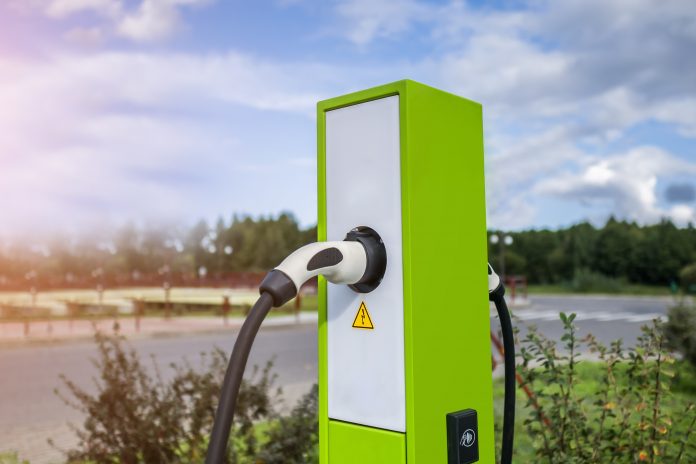Thomas Newby, Chief Operations Officer at Tonik Energy, discusses the role renewable energy has to play in ensuring regions can meet the power demand for green transport
2020 represents a launchpad for the public sector to act upon challenges around energy usage. Increasing consumer appetite for clean, green transport options along with global and regional emissions targets are putting ever-increasing pressure on the grid and shining a light on renewable energy sources such as solar power to bring improved sustainability. As changes to our transport systems gather momentum, collaboration between the public and private sector will be key to satisfying increasing power demand to futureproof our transport infrastructure.
Electric vehicles – rising to the challenge
Over the past year, great strides have been taken by policymakers to support the regeneration of the UK’s transport system. Bristol set a nationwide standard of change by becoming the first city in the UK to propose banning of diesel vehicles and Birmingham set out plans for a complete ban on private vehicles through its city centre. At national level, the UK government outlined its Road to Zero Strategy, part of a £1.5 billion investment into ultra-low emission vehicles; and, a major milestone was reached in October 2019, with one in 10 new cars sold in Britain being battery or hybrid electric, representing a jump from 6.9% market penetration a year ago.
With this evolution comes increasing pressure on local authorities and the UK government to meet the new, at-scale public transport demands. From April 2020, company car drivers will have an opportunity to make huge savings on pure battery and plug-in hybrid vehicles as new company car tax (BiK) rates come into force. Meeting the immediate demand is important, but what’s critical is for the public sector to futureproof our energy and charging infrastructure to ensure it can cope with the continuing need to scale over the next 5, 10 and 20 years. In response, the Department for Transport recently announced it was doubling investment in EV charging points.
As EV appetite grows amongst drivers, accelerating the integration of renewable energy sources into the grid will be paramount. When Britain’s most severe blackout in more than a decade caused rush hour travel disruption last August, it ironically shone a spotlight on our energy usage. The disruption highlighted the importance of ensuring we continue to transition our critical national infrastructure from heavily relied upon fossil-fuels to more sustainable and clean sources of energy. Last year has been hailed as the cleanest on record in terms of power supply, with UK zero carbon electricity outstripping fossil fuels for the first time – an important landmark towards a more sustainable energy future for all.
Solar power – the linchpin to green transport
Solar power is an environmental game-changer in our ability to produce clean power from renewable sources and reduce our reliance on ‘traditional grid energy’. One of the major arguments against solar power in the UK has been the weather – but that is a fallacy. Solar power generation relies on daylight, not sunlight, and while the UK may not have the climate of the Mediterranean, it does not mean solar power is a non-starter here.
Uptake and investment in any renewable energy technology are reliant on innovations to improve efficiency and reduce costs. Thankfully the news for solar is promising. Technological advances have made solar panels much more efficient than ever before and this, along with financial support and subsidies, has contributed to a reduction in the cost of solar power of up to 50% over the past decade.
Obtaining a green transport system possible
The current national energy infrastructure is increasingly unsuitable for significant increases in demand – such as the increased demand for power for EVs – without cities having to face potentially costly upgrades. Energy storage solutions will play a crucial part in the UK’s progress towards a clean energy future, adding crucial stability to the grid and providing an ‘always on’ power supply to keep our vehicles on the road 24/7.
Adoption of embedded solar and storage solutions will help organisations manage their energy usage, utilising insights through dynamic load management of installations to optimise surplus solar energy for EV charging. This efficient use of sustainable energy puts less pressure on the grid and also reduces costs. Moreover, monitoring of energy consumption will also enable organisations to sell excess resources back to the gird, providing commercial revenue opportunities. These innovations all contribute to helping the transport industry and organisations cope with the extra demand for power from the rising number of EVs on UK roads.
Collaborating for a green future
The International Energy Agency says that solar could surpass fossil fuels, wind and hydro by 2050 to become the world’s largest energy source. Technology is improving, demand is growing and consumer appetite for clean and sustainable energy has arguably never been higher. Stakeholders of government, industry and business have a mandate from the public to create a cleaner world for everyone. Collaboration and action between the public and private sector is imperative as no one function can drive change without this partnership in both practical and fiscal terms. Renewable energy technologies will play an increasingly prominent role through this period of rapid change to our transport systems, putting a clean air future within our reach.











